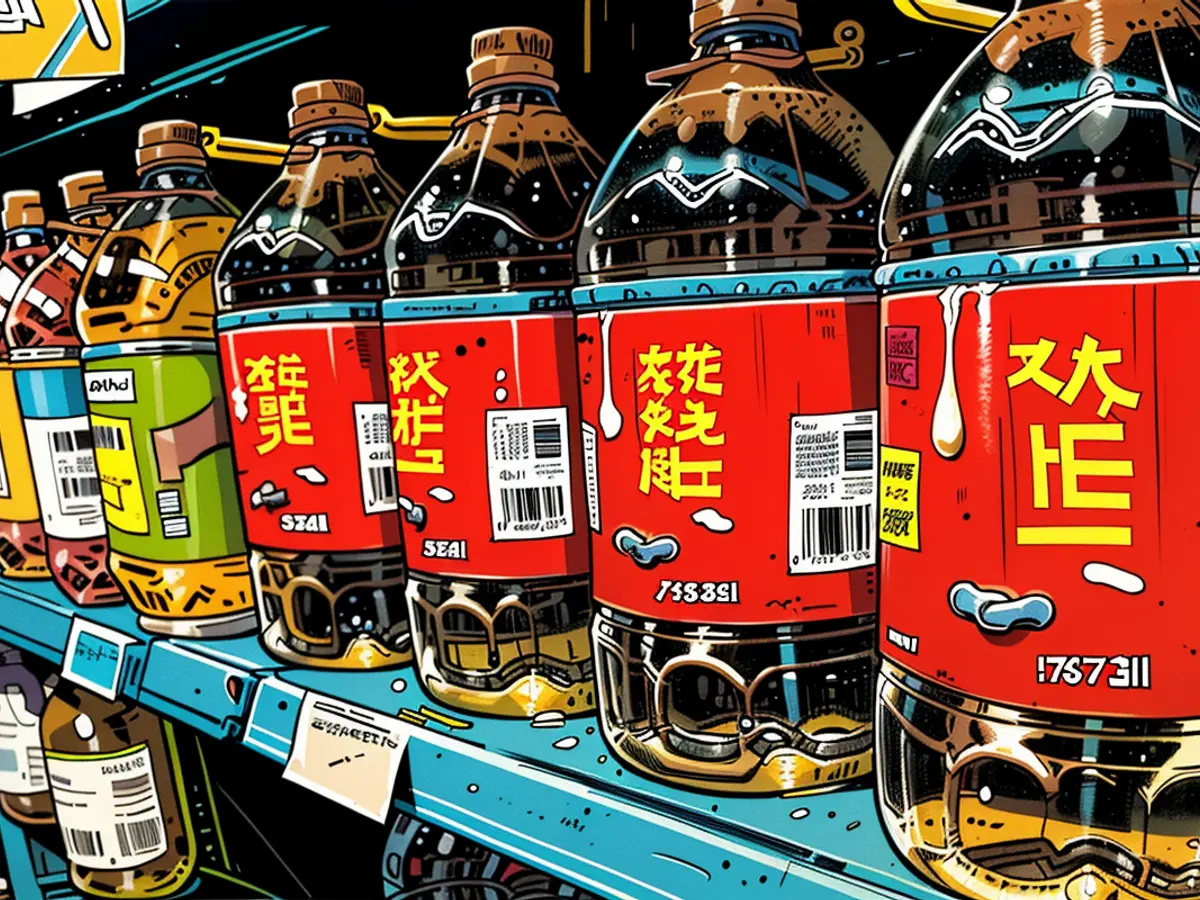A cooking oil scandal stirs China
In China, there is a new food scandal. Poisoned cooking oil is circulating. It was transported in chemical tankers. The government cannot get a grip on food safety.
At the end of May, in the city Yanjiao in the Chinese province of Hebei near Beijing. A tanker truck from a grain and oil company is being driven to. Only a few days beforehand, the same tanker truck had transported coal oil - a chemical liquid produced from coal. One hour later, it leaves - loaded with over 30 tons of soybean oil.
This is normal in China: There, tanker trucks can transport anything, both chemicals and foodstuffs, they are not specialized in a particular cargo.
The problem is that the tank is not cleaned and disinfected properly after unloading at many tanker trucks. Edible oil or other foodstuffs are simply pumped into the dirty tank. This leads to contaminations and chemical residues. This scandal was exposed by reporters from the state-owned newspaper Beijing News in early July.
Tanker trucks are hardly controlled
Subsequently, the state-owned television channel China Central Television (CCTV) reported on it, says BBC correspondent Stephen McDonell. Surprisingly, because the media of the Communist Party had previously been accused of concealing such scandals. "According to one of these reports in the state media, it was so widespread that it was an open secret in the industry," McDonell said.
The reason why so many companies do not clean their tanks is simple: The owners want to save money. Oil producers like the state-owned transport and storage company Sinograin probably also do not check the tanks properly. The authorities also do not take into account the dual use of tankers for both food and fuel.
As proof that their tank is clean, tanker drivers must show photos. Often, they use old photos, however. Whether the images are current is not checked, according to the Beijing News investigation. When the cargo is changed, the companies simply attach a new label to their tanker trucks.
Drivers want to avoid empty runs
Many Chinese criticize the tanker drivers for their health-damaging behavior. The competition in the industry is tough. Transport prices are falling, drivers are fighting for every load and often have no work for months. At the same time, they have to repay loans for their expensive trucks, not to mention gasoline and repair costs and toll fees.
In a video on social media, a tanker driver calculated what he earns. Just about seven euros remain for him from three days of work. The cleaning costs for the tank are not even included.
Coal oil transporters often have to take their cargo to the Chinese coast. Many soybean oil producers have their headquarters there. Therefore, it is only logical that they fill their tank for the return journey with coal oil to avoid empty runs.
Chemical residues go unnoticed
When the tanker trucks have delivered their coal oil, several kilograms of liquid remain in the tank, a driver told Beijing News reporters. If this is not cleaned, it mixes with the edible oil. Since coal oil is transparent, this is not noticeable to people.
For humans, these chemical residues can be poisonous. Oils with chemical residues can lead to poisoning, with symptoms such as nausea, vomiting and diarrhea. Long-term, they can damage the respiratory system and digestive system.
The scandal unnerves people in China, they are afraid of being poisoned: In Videos it can be seen that they are pouring oil into the outlet literally. Next to trash cans stand numerous discarded, still full oil bottles.
Some produce their own oil safely. "There's a boom in sales of oil presses at home for making one's own oil," reports China expert Bill Bishop in the "Sharp China" Podcast.
"Reports to be received soon"
But what are the Chinese authorities doing? What they can do best: censor. Despite it being the largest food scandal in China since the Melamine Scandal in 2008. At that time, the toxic substance Melamine was found in baby formula and other milk products. 300,000 children fell ill, six babies died. As a result, two employees of the involved companies were executed.
About the Oil Tanker Scandal in China, there are hardly any critical articles left. Some reports have been censored or deleted, reports the China Digital Times. On the Chinese Twitter-equivalent Weibo, corresponding search terms have been blocked. There is also an app that allows trucks and even tank trucks to be located in China - it is suddenly no longer available.
As a result, several official investigations are underway: The State Council has set up an Investigation Team to examine standards in food transportation. "They will try to calm down the discussion, and then we will receive a report quite soon," expects Bishop. "Some people will be arrested, perhaps some officials at a higher level will lose their jobs. The message will be: It won't happen again. And then it goes on."
Actually, food safety is an important goal of the Chinese government. But time and again there are food scandals, with baby formula, meat, and also edible oil. Despite China having one of the world's strictest food safety laws - the main problem, however, is enforcement. An Expert formulates it aptly: There are too many responsible parties with too little sense of responsibility.
The food scandal involving poisoned cooking oil in China has also been reported by oil companies, as they often transport both chemicals and foodstuffs in tanker trucks. This practice is common in China, leading to contaminations and chemical residues in edible oil.
The Oil and Gas Journal reported that China's National Development and Reform Commission (NDRC) has initiated an investigation into oil companies following the food scandals, including complaints about the improper handling of tankers and the use of tankers for transporting both oil and food.








